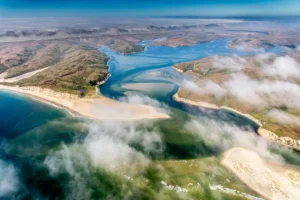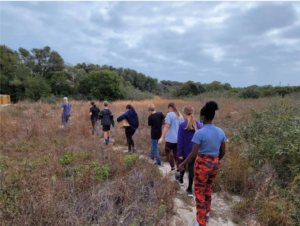
University of Delaware Seeks Doctoral Students
The University of Delaware’s School of Marine Science seeks two doctoral students to join a research group investigating ocean acidification.
Share this post:

The University of Delaware’s School of Marine Science seeks two doctoral students to join a research group investigating ocean acidification.

The Interagency Working Group on Ocean Acidification (IWG-OA) is seeking nominations for membership on the newly established Ocean Acidification Advisory Board (OAAB).

NOAA’s Ocean Acidification Program (OAP) announces the FY24 Education Mini-grant Program awards.
The NOAA Ocean Acidification Program (OAP) works to prepare society to adapt to the consequences of ocean acidification and conserve marine ecosystems as acidification occurs. Learn more about the human connections and adaptation strategies from these efforts.
Adaptation approaches fostered by the OAP include:

Using models and research to understand the sensitivity of organisms and ecosystems to ocean acidification to make predictions about the future, allowing communities and industries to prepare

Using these models and predictions as tools to facilitate management strategies that will protect marine resources and communities from future changes

Developing innovative tools to help monitor ocean acidification and mitigate changing ocean chemistry locally
Drive fuel-efficient vehicles or choose public transportation. Choose your bike or walk! Don't sit idle for more than 30 seconds. Keep your tires properly inflated.
Eat local- this helps cut down on production and transport! Reduce your meat and dairy. Compost to avoid food waste ending up in the landfill
Make energy-efficient choices for your appliances and lighting. Heat and cool efficiently! Change your air filters and program your thermostat, seal and insulate your home, and support clean energy sources
Reduce your use of fertilizers, Improve sewage treatment and run off, and Protect and restore coastal habitats
You've taken the first step to learn more about ocean acidification - why not spread this knowledge to your community?
Every community has their unique culture, economy and ecology and what’s at stake from ocean acidification may be different depending on where you live. As a community member, you can take a larger role in educating the public about ocean acidification. Creating awareness is the first step to taking action. As communities gain traction, neighboring regions that share marine resources can build larger coalitions to address ocean acidification. Here are some ideas to get started: